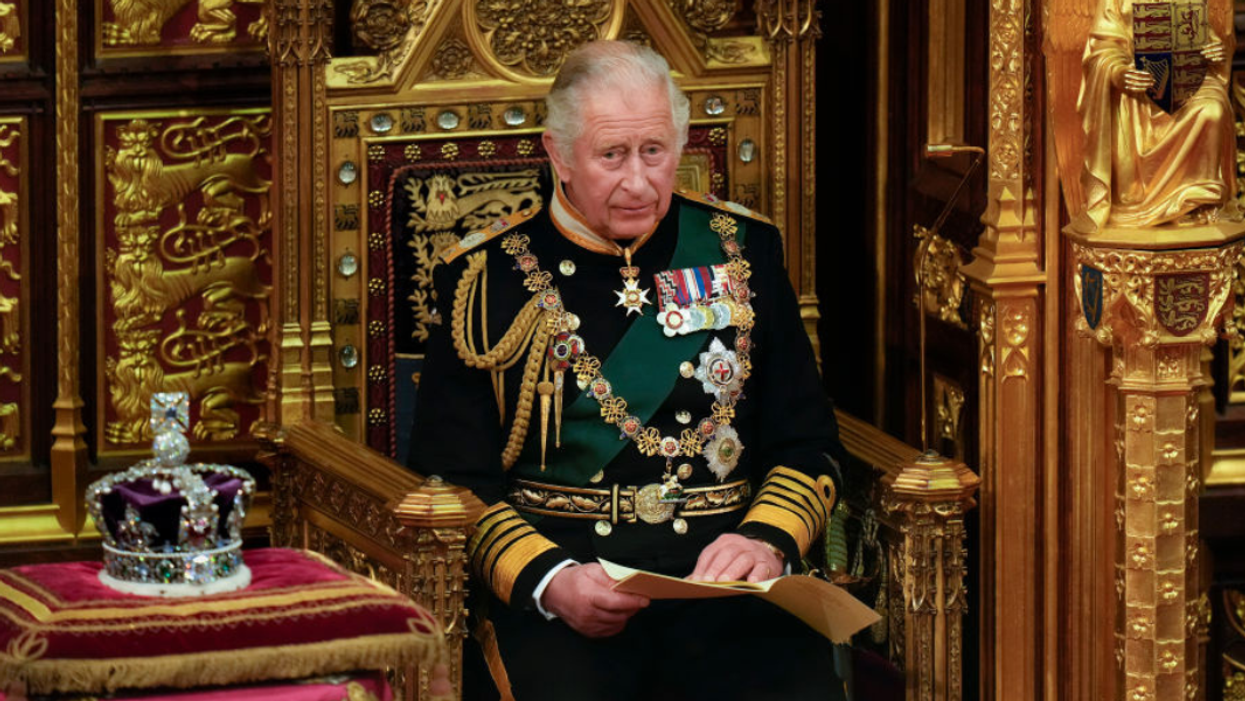Upon the coronation of King Charles III, and Queen Camilla, while observing the ever-heightening polarization of American politics, let’s reflect on whether Making America a (Constitutional) Monarchy Again (MAMA!) might be a good idea.
One of the authors here, Joan Blades, co-creator of the flying toaster screensaver, is a progressive, cofounder of MoveOn.org, MomsRising.org, and, most subversive of all, LivingRoomConversations.org, an organization dedicated to the sinister plot to restore respectful engagement (harmony) to our political and personal interactions.
Ralph Benko is a conservative who worked in or with three Republican White Houses, was called by a Washington Post columnist “the second most conservative man in the world” for his gold standard advocacy, and co-founded the Capitalist League, dedicated to the sinister plot to end class warfare and foment a golden age of equitable prosperity.
We’re both radical (as in “root”) populists, one of the left, one of the right. That would make us antithetical to monarchists, whose champion was Thomas Hobbes.
Hobbes, in Leviathan, said that without, preferably, an absolutely powerful authoritarian government, life would be ”solitary, poor, nasty, brutish, and short.” Relax. We’re not here propounding despotism, benevolent or not.
That said, something interesting happened in the wake of Queen Elizabeth’s recent passing. In the UK, the left and the right came together to extol her.
This was exemplified by the obsequies held in the House of Commons, broadcast to the world by C-SPAN. The near-universal verdict was that her Majesty was… majestic.
America was born in a fury against the tyranny of her great-great-great-grandfather, George III. "Majestic" is not how we are used to thinking about royalty. What gives?
Let’s take a closer look at what royalty, “the crown,” means in this era. In simplest terms, a monarch is the “head of state,” distinguished from the “head of government,” a role there filled by the prime minister.
In a non-monarchical nation, like America, the president fills the roles of both the head of state and head of government. What’s the difference between state and government?
Per Britannica, “The role of the head of state is primarily representative, serving to symbolize the unity and integrity of the state at home and abroad. … [T]he United Kingdom is a constitutional monarchy in which the monarch, as head of state, performs an important but mainly symbolic function in the British political system..." And per Royal.uk, “As Head of State, The Monarch has to remain strictly neutral with respect to political matters.”
The praise poured upon the memory of Queen Elizabeth “the great” II focused on her dignity, her kindliness, her merry disposition telegraphed by the twinkle in her eye, and her ability to avoid taking sides in political controversies. Their Prime Minister praised her “unique ability to transcend difference and heal division.”
In America, the duties of head of state and head of government merge in a single officer: the president. Thus, there is no official whose sole job it is to rise above partisanship and unite the country in a higher level of solidarity and affection.
Big mistake.
This has caused problems ever since George Washington, the only president to run unopposed. President Washington, in his farewell address, prophesied and condemned the current hyper-partisanship which now besets America. There Washington admonishes us:
“The alternate domination of one faction over another, sharpened by the spirit of revenge, natural to party dissension, which in different ages and countries has perpetrated the most horrid enormities, is itself a frightful despotism. But this leads at length to a more formal and permanent despotism. The disorders and miseries which result gradually incline the minds of men to seek security and repose in the absolute power of an individual; and sooner or later the chief of some prevailing faction, more able or more fortunate than his competitors, turns this disposition to the purposes of his own elevation, on the ruins of public liberty.
“It serves always to distract the public councils and enfeeble the public administration. It agitates the community with ill-founded jealousies and false alarms, kindles the animosity of one part against another, foments occasionally riot and insurrection.”
Riot and insurrection?
Shades of January 6th!
So maybe it would be worth a living room conversation or two as to whether to seek an appropriate consensus figure as our head of state. Create an official – King, Queen or both – whose entire job is to bring us together beyond partisanship? As Elizabeth II did, in service to her subjects.
Restore the monarchy? As Niels Bohr said to Wolfgang Pauli, “We are all agreed that your theory is crazy. The question that divides us is whether it is crazy enough to have a chance of being correct.”
No crazier than flying toasters.
Or restoring the gold standard.



















Trump & Hegseth gave Mark Kelly a huge 2028 gift